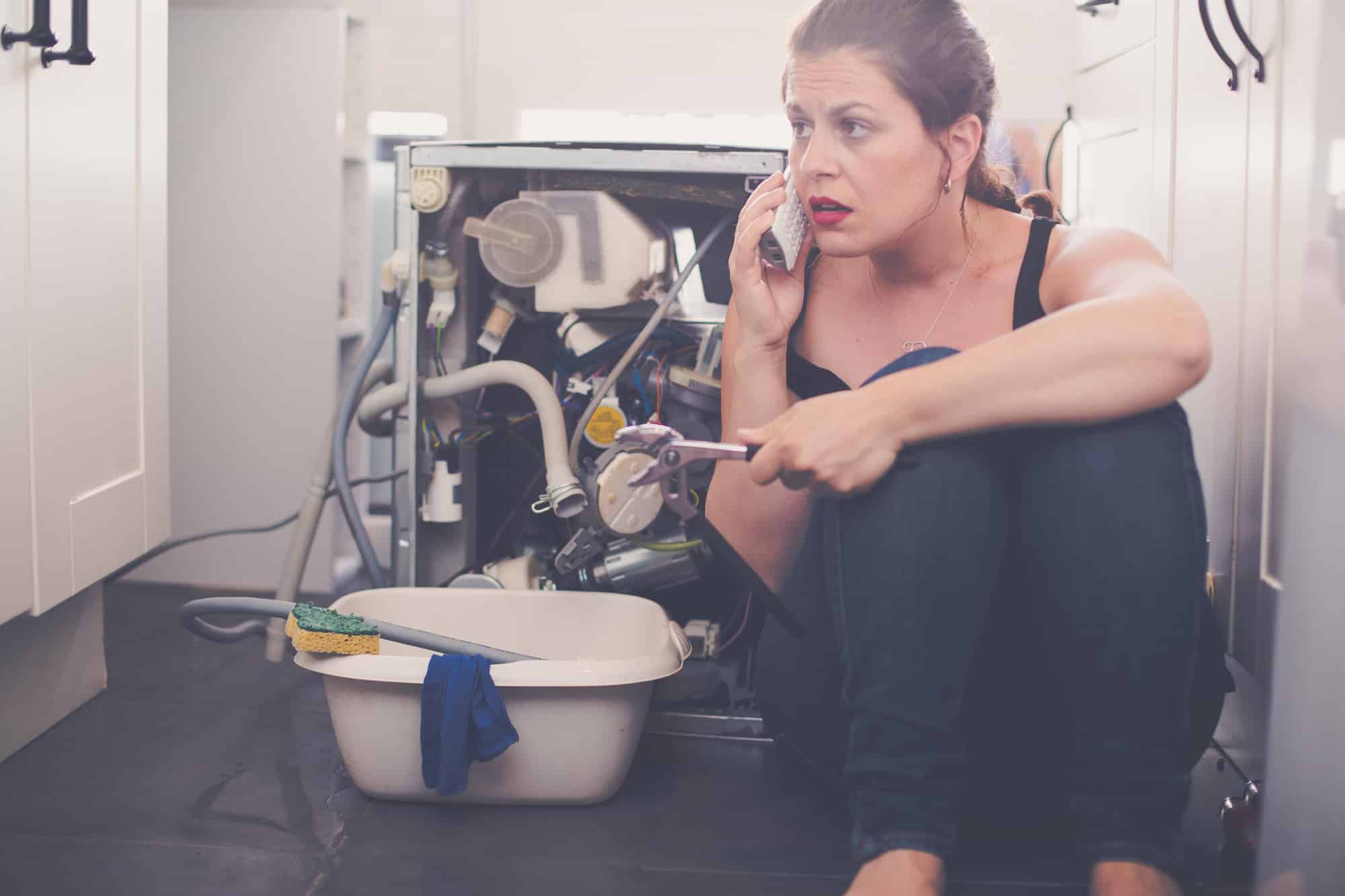Plumbing Emergencies: The First Steps
There are two main things you should do if you’re having a plumbing issue, and neither of them are panic. First, you should find the source of the issue and turn off the water in that area.
Behind a toilet, for example, the water shut off is a small, (usually) silver, football-shaped knob. You turn it clockwise, or to the right until you feel resistance.
Once that’s done, you need to contain the damage. If your bathroom is flooding, your first instinct might be to soak up all the water on the tile – but what about the carpet or wood floor outside the bathroom?
Create some sort of barrier of towels or cloths that can keep the damage contained. Then you can try to soak up some of the mess (if it’s just water).
If you’re having a sewage overflow, you don’t want to use your good house towels to soak up human waste or contaminated water. More on biological contamination later.
Now that these two things are under control, you can decide whether or not you need to call a plumber.
Should I Call an After Hours Plumber?
First things first, if there is sewage or contaminated water, that poses a health risk to you and your family. If you have an overflow of dirty water, always call a plumber.
Unless it’s contained in a toilet and it’s no longer running, with the water off.
Here are some other things to consider:
1. What Day is It?
Most plumbers take Saturday and Sunday off because they’re people who want to spend time resting and with their families. That means if you have a problem Friday night, you’ll be waiting until Monday morning to get someone out to you.
That’s a long time to have flooding or overflow, so it’s worth calling the emergency plumber out to you.
But if it’s Sunday night at 3 am and you have a bad toilet that won’t plunge, you can probably wait 6 hours or so until Monday business hours.
The same is true with the time of day, on weekdays. If it’s close to the next day, you can usually wait. But if it’s getting in the way of your living routine and your family’s functioning, go ahead and get someone out there stat.
You don’t want to have a family not able to use the only bathroom in the house for 12+ hours. That’s a whole different kind of emergency!
2. How Much Trouble is This Problem Causing?
On that note, you want to figure out how much trouble this problem is actually causing. If you have an extra bathroom everyone can use and you’re able to close off the problem area, then you can probably wait.
But if there’s flooding or the issue is in a spot that people need to access to function, it’s worth paying the emergency fee.
3. Is the Problem Contained?
Ask yourself if the problem is or can be contained in one area. If there is free flowing water or overflow that won’t shut off, call someone immediately.
Water damage in your home is no joke and can take some serious restoration services (and costs) if you leave the issue for too long.
4. Is My Health at Risk?
We’ve already touched on this a bit, but it’s worth reiterating. Human waste carries a bevy of diseases that you don’t want to expose yourself or your family to.
Exposure to human waste or waste contaminated water can put you at risk for E. Coli or pink eye. Other health risk factors include cholera, types of hepatitis, dysentery, and even polio.
Paying the emergency plumber fee is well worth the costs you could have to pay for emergency health care if you leave yourself exposed.
Plumbing Emergency Examples
If you opened this post looking for a list of plumbing emergencies, we’re ready to deliver. Here are some solid examples (sorry) of emergencies.
- Burst Pipes
- Exposed or Broken Water Lines
- Anything sewage related
- No water
- No hot water (for a long period of time)
- Flooding that you can’t clean up or stop
If you experience any of those problems, call our 24/7 help team here.
Staying Clean and Dry
Some plumbing issues, like no hot water or a rising toilet, fix themselves on their own. Hot water can run out in a house filled with people and older toilets sometimes take a while to flush large amounts of products.
But not everyone is that lucky. Follow the tips in this guide if you’re having a plumbing problem so that you know what to do. Staying calm and being able to process your next step is the best thing you can do.
And if you need us for a plumbing emergency or low-priority repair – we’re always here to help.


